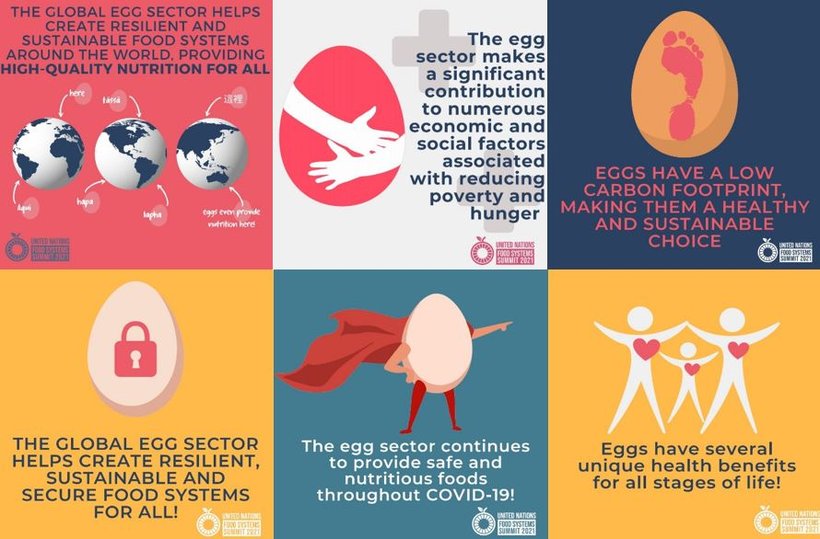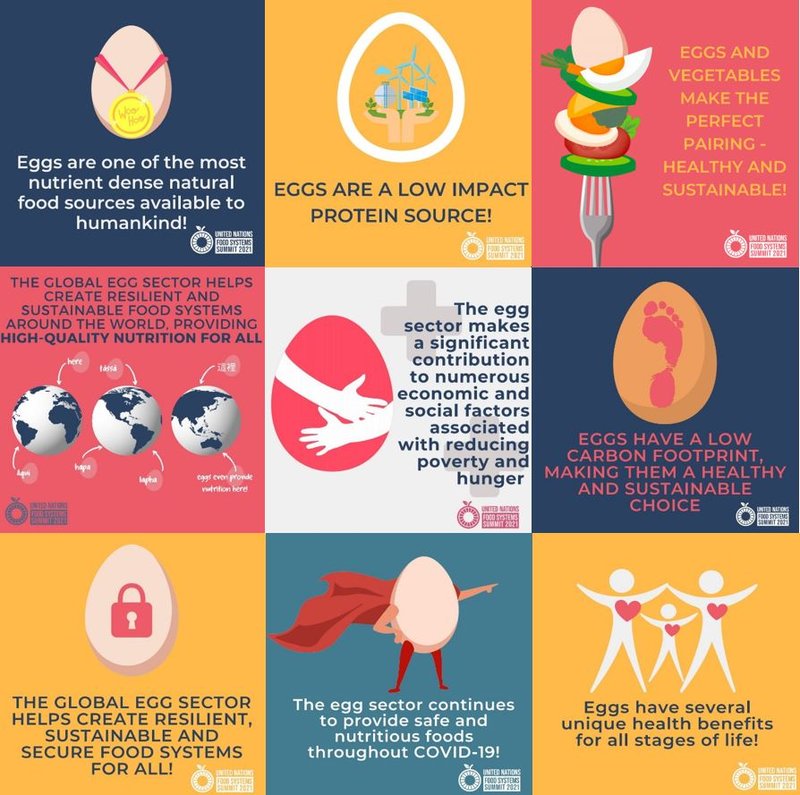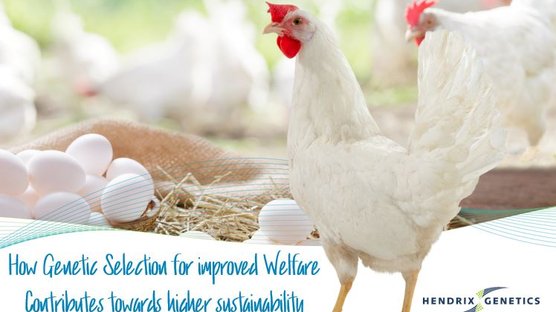
Published on March 15, 2021
The role of eggs in sustainable food systems
In 2021, the UN Secretary General will convene a Food Systems Summit to launch ‘bold new actions’ to transform the way the world produces and consumes food, delivering progress on the UN Sustainable Development Goals.
The summit has established five key action tracks in which participants will explore ‘game changing activities’:
- Ensuring Access To Safe And Nutritious Food For All
- Shifting To Sustainable Consumption Patterns
- Boosting Nature-positive Production At Sufficient Scale
- Advancing Equitable Livelihoods And Value Distribution
- Building Resilience To Vulnerabilities, Shocks And Stresses
Why is the UN Food Systems Summit important for the egg industry? Billed as a ‘People’s Summit’, the summit organizers intend to dramatically elevate public awareness about the importance of food systems in delivering the UN Sustainable Development Goals. However, the motive behind the summit is being questioned by many academics and scientific experts. Professor Frederic Leroy of Vrije Universiteit Brussel notes, “The UN Food System Summit is being targeted by those in favor of a ‘Reset’ and the use of synthetic foods.” We must take action now, to ensure animal proteins, specifically eggs, continue to play a vital role in healthy and sustainable diets of the future!
Why should egg businesses join in the global conversation?
This summit provides a significant opportunity to position eggs as a vital part of the global food system and to strengthen recognition of egg’s role in providing healthy, nutritious, affordable and low impact protein all over the world.
We cannot do this alone, by uniting as a global industry, we can amplify our voice, and advocate for international recognition of the important role eggs play.
Action Track 1: Ensuring Access to Safe and Nutritious Food for all
- Eggs play a key role in healthy nutrition and development throughout life. As a complete protein, the amino acids within eggs are an almost perfect match for the human body.
- Eggs are one of the most nutrient dense natural food sources available to humankind and are actively helping to feed the growing world population.
- Eggs are one of the most widely available and affordable natural sources of 14 essential nutrients including Choline, vitamin D and vitamin B12.
- In rural and low-income settings, where high-quality protein may be scarce, eggs have been scientifically proven to reduce stunting and other nutritional challenges.
- Animal-sourced foods, including eggs, are associated with better growth, cognitive performance, and motor development among children, particularly in low-income countries.
Action Track 2: Shifting to Sustainable Consumption Patterns
- Plants alone may not be the answer. An overly simplistic view of plant-versus animal-sourced foods may have unintended consequences for human health. In fact, nutrient deficiencies exist in low and middle-income populations that consume mostly plant-based diets. Eggs can help make plant-based diets even stronger by adding vital nutrients
- Eggs contain high-quality protein and are recommended as part of meal plans because they contribute key essential and under-consumed nutrients, such as choline, vitamin D and vitamin B12
- Eggs are one of the most nutrient dense natural food sources available to humankind and are actively helping to feed the growing world population
- Animal-sourced foods, including eggs, are associated with better growth, cognitive performance, and motor development among children in low-income countries
- Eggs are a low impact protein source according to the World Resources Institute Protein Scorecard. When combined with the significant nutritional qualities eggs hold, consumption of eggs should be considered both good for human health and planetary health.
Action Track 3: Boosting Nature-Positive Production at Sufficient Scale
- The egg industry is committed to producing nutritious foods in environmentally sound and responsible ways.
- Eggs are a low impact protein source according to the World Resources Institute Protein Scorecard. When combined with the significant nutritional qualities eggs hold, consumption of eggs should be considered both good for human health and planetary health.
- Thanks to new efficiencies and significant productivity gains, eggs have a low carbon footprint. In 2010, the environmental footprint of a kilogram of eggs produced in the US had reduced by 65% compared to 1960, with greenhouse gas emissions reducing by 71%.
Action Track 4: Advancing Equitable Livelihoods and Value Distribution
- Egg production transforms the lives of individuals, families, communities and entire populations.
- Egg production provides a regular source of food and income and puts farmers in a better position to feed their families and send their children to school.
- In developing countries, egg production offers rural women a lifeline to feed their children. Selling eggs to their local community enables them to send their children to school.
- The egg sector makes a significant contribution to numerous economic and social factors associated with reducing poverty and hunger, both at the household and community level.
- Egg production results in substantial employment generation and value beyond the farm gate, which in turn spurs development and poverty reduction in the local community.
- Eggs are an exceptional tool for social and sustainable development, as seen through the work of many charities. They have unique characteristics that makes implementing egg production a practical, cost-effective solution in developing countries.
Action Track 5: Building Resilience to Vulnerabilities, Shocks and Stress
- Agricultural and the rural economy are key sectors for supporting livelihoods in protracted crises.
- The global egg sector helps create resilient and sustainable food systems that are equitable, secure, and ensure high-quality nutrition for all.
- Throughout COVID-19, the global egg sector, an essential service, continued to provide safe, affordable, accessible, and nutritious foods that boost our immune system.
Please join us in our efforts to support the industry to take action and promote the essential role eggs play in healthy and sustainable diets!

Find out more about the 2021 UN Food System summit
Find out more about the IEC and her activities



